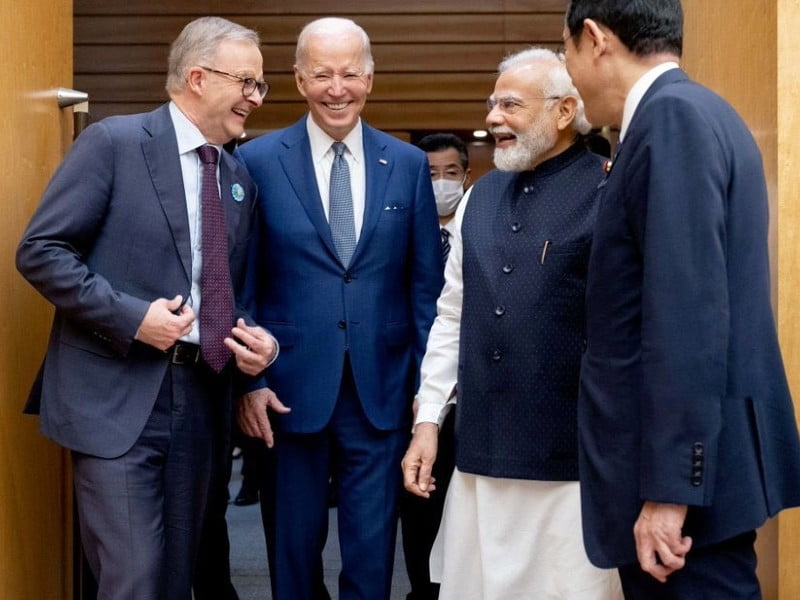The Quad nations have finished mapping capacity and vulnerabilities in global semiconductor supply chains in the first step of an effort to reduce reliance on China for critical minerals.
The leaders from Australia, the US, India and Japan met in Tokyo this week for the second in-person meeting of the Quad, Anthony Albanese’s first act as new Prime Minister.
The meeting had a substantial focus on technology, specifically critical minerals, cybersecurity and space.

The Critical and Emerging Technologies Working Group, launched at the first Quad meeting in March last year, has now finished mapping collective capacity and vulnerabilities in global semiconductor supply chains.
“The Quad remains focused on harnessing critical and emerging technologies to enhance the prosperity and security of the region,” the Quad meeting notes, released on Tuesday, said.
“We have mapped the Quad’s capacity and vulnerabilities in global semiconductor supply chains and have decided to better leverage our complimentary strengths to realise a diverse and competitive market for semiconductors.”
A report by the Australian Strategic Policy Institute late last year found that Australia and its Quad partners need to better cooperate on critical technologies and launch a co-investment vehicle to support this and counter the dominance of China in the space.
The four nations will also convene a Quad Investors Network with industry partners to discuss business and investment issues surrounding critical and emerging technologies. This “independent consortium of investors” will seek to advance access to capital for these technologies across the four Quad countries.
On cybersecurity, the meeting saw the launch of the Quad Cybersecurity Partnership, with each country given an area of focus. Australia will look at critical infrastructure protection, after passing a series of laws in that space last year.
The group will also strengthen information-sharing among the respective Computer Emergency Response teams and have launched coordinating standards for the procurement of software by governments.
“In an increasingly digital world with sophisticated cyber threats we recognise an urgent need to take a collective approach to enhancing cybersecurity,” the Quad meeting notes said.
“We commit to improving the defence of our nations’ critical infrastructure by sharing threat information, identifying and evaluating potential risks in supply chains for digitally enabled products and services, and aligning baseline software security standards for government procurement, leveraging our collective purchasing power to improve the broader software development ecosystem so that all users can benefit.”
The nations also agreed to improve collaboration to exchange satellite data, enable capacity-building and to consult on norms and guidelines on space. They have committed to “free, full and open” sharing of space-based civil Earth observation data.
“Each Quad partner will endeavour to improve public access to Earth observation satellite data and applications. We will work together to create an Earth observation based monitoring and sustainable development framework,” the group said.
Applications for the Quad Fellowship, which will see 100 students from the four countries study in the US each year in STEM fields, have also officially opened.
“The Quad Fellowship empowers exceptional STEM graduate students to advance research and innovation throughout their careers with a lens of positive social impact,” the White House briefing notes said.
“It does so by providing scholarships, immersive and inspiring events at the nexus of STEM and society, mentorship and career-advancing programming, and cross-cultural exchange opportunities.”
Do you know more? Contact James Riley via Email.

